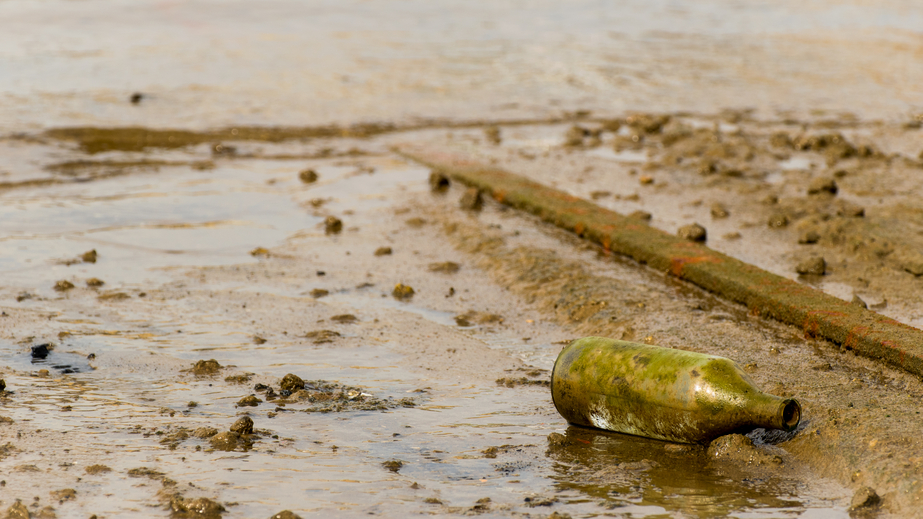Nevada Environmental and Laws/Rules/Ethics 30 PDH Discount Package 1
In-Situ Air Sparging (C14-001)
Landfill Gas Collection and Treatment Systems (C11-001)
Engineering Laws, Rules, and Ethics for Nevada Professional Engineers (NV3-001)

This online engineering PDH course provides guidance for the design of disposal systems. A disposal system is a properly engineered facility used for ultimate disposal of hazardous waste into or on land or water. Disposal systems have general applicability to all types of waste streams.
The different disposal techniques are collectively capable of handling wastes in solid, semisolid, and liquid forms. As many disposal systems have shown migration or dispersion of the contaminants to the surrounding environment, there is usually strong public resistance to siting a solid or hazardous waste disposal facility.
This 2 PDH online course is applicable to civil and environmental engineers, as well as design and construction personnel involved with hazardous and toxic waste treatment and disposal activities.
This PE continuing education course is intended to provide you with the following specific knowledge and skills:
- Onsite disposal techniques
- Offsite disposal techniques
In this professional engineering CEU course, you need to review Chapter 5 of the US Corps of Engineers Publication EM 1110-1-502, "Disposal Technologies".
Upon successful completion of the quiz, print your Certificate of Completion instantly. (Note: if you are paying by check or money order, you will be able to print it after we receive your payment.) For your convenience, we will also email it to you. Please note that you can log in to your account at any time to access and print your Certificate of Completion.

This online engineering PDH course provides guidance for evaluation of the feasibility of in-situ air sparging (IAS) for remediation of contaminated groundwater and soil. This course also describes design and operational considerations for IAS systems.
In-Situ Air Sparging (IAS) is a rapidly emerging remediation technology for treating contaminants in saturated zone soils and groundwater. It is a relatively easy technology to implement and it is well known to regulatory agencies. IAS involves the injection of air, pure oxygen, or other gases below the water table which may result in the removal of contaminants through volatilization or bioremediation. In a less common application, IAS can also be used to immobilize contaminants through chemical changes such as precipitation.
This 14 PDH online course is intended for civil and environmental engineers as well as other technical professionals interested in learning about the design, operation, and feasibility of IAS systems.
This PE continuing education course is intended to provide you with the following specific knowledge and skills:
- Learning about the background of IAS
- Familiarizing with the underlying physical process and technology used in IAS
- Understanding the basics of feasibility evaluations and site characterization
- Gaining insight into pilot testing guidance and strategies
- Familiarizing with design considerations for IAS
- Learning about operation and maintenance requirements for IAS systems
- Familiarizing with IAS system shutdown strategies
- Gaining insight into administrative issues such as regulations, patents, and safety
Upon successful completion of the quiz, print your Certificate of Completion instantly. (Note: if you are paying by check or money order, you will be able to print it after we receive your payment.) For your convenience, we will also email it to you. Please note that you can log in to your account at any time to access and print your Certificate of Completion.

This online engineering PDH course establishes criteria and guidance for landfill gas (LFG) collection and treatment systems. In addition, this course provides information about the design of systems used to monitor, collect, transport, and treat gas from municipal, industrial, and hazardous waste landfills.
LFG is produced by the biological decomposition of general solid waste refuse and other organic materials disposed of in the landfill. Its production typically begins within a year of waste placement, and may continue up to 50 years after landfill closure, with peak LFG production for any given disposal cell occurring within the first or second year of waste placement. The total LFG production rate increases as more waste is added to the landfill.
This course aims to provide information specifically relating to landfill gas collection systems in order to help landfill employees understand the available equipment and how and when to use them.
This 11 PDH online course is applicable to civil, environmental, geotechnical engineers, construction managers and landfill operators seeking an introduction to the operation and maintenance of landfill gas collection systems.
This PE continuing education course is intended to provide you with the following specific knowledge and skills:
- Understanding the purpose of landfill gas collection systems
- Learning how to design landfill gas collection systems
- Learning how to design landfill gas treatment systems
- Familiarizing with the operation and maintenance of landfill gas collection systems
- Familiarizing with the safety procedures and regulations of landfill gas collection systems
Upon successful completion of the quiz, print your Certificate of Completion instantly. (Note: if you are paying by check or money order, you will be able to print it after we receive your payment.) For your convenience, we will also email it to you. Please note that you can log in to your account at any time to access and print your Certificate of Completion.

This online engineering PDH course presents the laws and rules of ethics and professional responsibility governing the practice of engineering in the State of Nevada.
Excerpts from Chapter 625 of the Nevada Revised Statutes and the Nevada Administrative Code which relate to the rules of professional conduct, prohibited acts, as well as disciplinary and other pertinent regulatory provisions are presented in this course.
Engineering ethics is (1) the study of moral issues and decisions confronting individuals and organizations involved in engineering and (2) the study of related questions about moral conduct, character, ideals and relationships of peoples and organizations involved in technological development (Martin and Schinzinger, Ethics in Engineering).
Since engineers are faced with frequent moral and ethical dilemmas while practicing their engineering profession, this course will provide engineers with moral and ethical guidance in their decision making process. Most importantly, it will provide engineers with insight on how to conduct, respect and protect their engineering practice with the utmost professionalism.
This 3 PDH online course is applicable to Professional Engineers licensed in the State of Nevada who are required to demonstrate continuing professional competency in the Nevada Laws, Rules and Ethics as a condition of license renewal. For each renewal period, every licensee must complete thirty (30) professional development hours, at least two (2) of the 30 hours must be in professional ethics and one (1) of the 30 hours must be in the laws and rules regulating the practice of engineering in the State of Nevada.
This PE continuing education engineering course is intended to provide you with the following specific knowledge and skills:
- Familiarizing with the laws and rules regulating the practice of engineering in the State of Nevada
- Learning about engineering ethics, and the laws and rules of professional conduct and responsibility
- Understanding the role of the Nevada Board and its disciplinary authority
- Gaining an overview of ethical and disciplinary case studies and the corresponding penalties imposed by the Nevada Board
Upon successful completion of the quiz, print your Certificate of Completion instantly. (Note: if you are paying by check or money order, you will be able to print it after we receive your payment.) For your convenience, we will also email it to you. Please note that you can log in to your account at any time to access and print your Certificate of Completion.